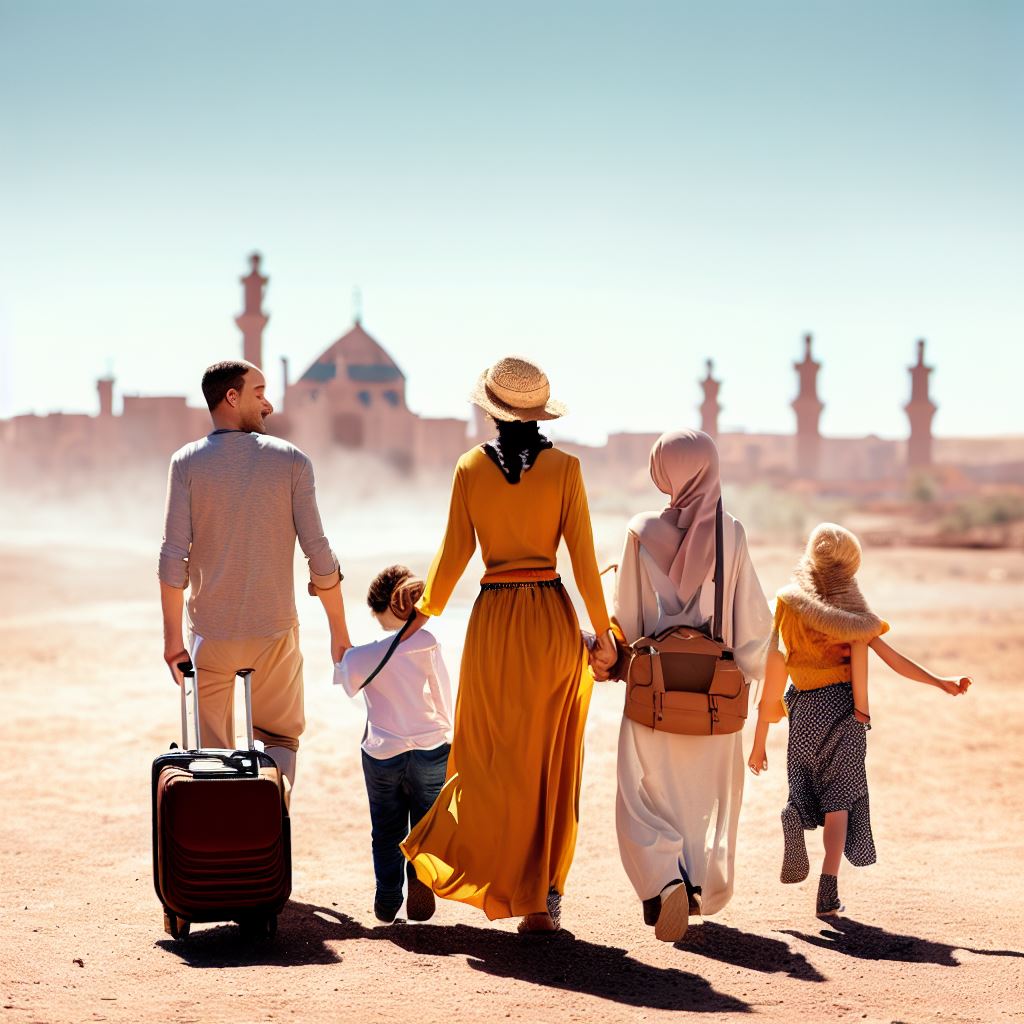
Winter in Morocco: A Comprehensive Packing and Travel Guide
Winter in Morocco is unlike any other. With its unique blend of African and Mediterranean climates, the country offers a winter experience that combines mild coastal weather with snow-capped mountain peaks. Whether you're navigating the bustling streets of Marrakech or trekking in the Atlas Mountains, knowing what to wear and pack is crucial. This guide delves deep into the Moroccan winter, offering insights on clothing, packing tips, and travel hacks to ensure a memorable journey.
Table of Contents
- Weather Overview
- Cultural Considerations
- Packing Tips
- Travel Hacks
- The Festive Season in Morocco
- Frequently Asked Questions
- Conclusion
Weather Overview
Understanding Morocco's winter climate is essential for packing appropriately. The country's diverse geography means that weather can vary significantly from one region to another.
Coastal Areas
Cities like Casablanca, Tangier, and Essaouira experience mild winters. Daytime temperatures hover around 18°C, but nights can be cooler, dropping to 8°C. While the days are generally sunny, rainfall is more frequent in winter, especially in northern regions. Packing a light rain jacket and layers is advisable.
Inland Cities
Marrakech and Fez, located inland, have colder nights with temperatures often dropping to 5°C. However, daytime temperatures remain pleasant, averaging 20°C. These cities can also experience occasional rainfall, so it's wise to pack an umbrella or raincoat.
Mountain Regions
The Atlas Mountains, popular for trekking, can be freezing in winter. Snowfall is common, and temperatures can plummet below zero, especially at higher altitudes. If you're planning a mountain adventure, pack warm clothing, including thermal layers, a heavy jacket, gloves, and a hat.
Sahara Desert
While days in the Sahara can be warm, nights are chilly, with temperatures dropping to 5°C or lower. The desert climate is dry, so hydration is crucial. Packing moisturizers and lip balms can help combat the dryness.
Cultural Considerations
Morocco is a predominantly Muslim country, and dressing modestly is a sign of respect. While tourist areas are more lenient, it's essential to be aware of cultural norms, especially when visiting religious sites or rural areas.
For Women
Women should aim to cover their shoulders, cleavage, and knees. Loose-fitting trousers, maxi skirts, and long-sleeved tops are ideal. While headscarves aren't mandatory for non-Muslim women, carrying one can be useful, especially when visiting mosques.
For Men
Men should avoid wearing sleeveless shirts. While shorts are acceptable in tourist areas, trousers are more appropriate in conservative regions.
Packing Tips
Packing efficiently for a Moroccan winter requires a balance between staying warm and respecting local customs. Here are some essentials to include in your packing list:
- Layered clothing: T-shirts, long-sleeved shirts, sweaters, and jackets.
- Warm clothing: Thermal wear, a heavy jacket, gloves, and a hat for mountain regions.
- Footwear: Comfortable walking shoes and warmer boots if heading to snowy areas.
- Accessories: Sunglasses, scarves, and a hat for sun protection.
- Essentials: Personal toiletries, medications, and a first-aid kit.
- Electronics: Camera, phone, chargers, and a universal adapter.
Travel Light and Save
With airlines charging hefty fees for checked luggage, traveling light can save money. Packing versatile clothing items that can be mixed and matched can reduce the number of outfits you need. Additionally, consider wearing your heaviest items during the flight to save luggage space.
Hold Luggage vs. Cabin Bag
If you can fit everything into a cabin bag, you'll save time at the airport and avoid potential lost luggage issues. However, ensure your bag meets the airline's size and weight restrictions. If you're a frequent traveler, investing in priority boarding can be worthwhile, allowing you to board first and secure overhead bin space.
Booking Seats in Advance
Booking seats in advance ensures you and your travel companions sit together. While there's a fee, it provides peace of mind. Not booking in advance runs the risk of being separated or getting a less desirable seat.
Extra Legroom Seats
For tall travelers or those seeking more comfort, extra legroom seats can be worth the additional cost. However, weigh the benefits against the price before making a decision.
Travel Hacks
Traveling to a foreign country can be daunting, but with a few hacks up your sleeve, you can navigate Morocco like a pro.
Stay Connected
Consider getting an eSIM for seamless connectivity. An eSIM allows you to stay connected without the need for physical SIM cards, making it a convenient option for travelers.
Save on Transfers
Instead of hailing a taxi, consider booking a transfer through Get Transfer for competitive rates and a hassle-free experience.
Explore Activities
Discover the best of Agadir by booking activities and tours through Agadir Flights. From camel rides to quad biking, there's something for everyone.
Stay Updated
For real-time flight updates, consider using Agadir Flights' Flight Status tool. It provides timely information, ensuring you're always in the know.
The Festive Season in Morocco
December in Morocco is a time of celebration. While Christmas isn't a public holiday, many Moroccans, especially those in the Christian community, celebrate it. New Year's Eve, however, is widely celebrated with feasts, parties, and fireworks. If you're in Morocco during this period, join in the festivities and experience the local culture.
Frequently Asked Questions
Traveling to a new country often comes with a myriad of questions. Here are some commonly asked questions about winter travel in Morocco:
Is it safe to travel to Morocco in winter?
Yes, Morocco is generally safe for tourists. However, it's always advisable to stay alert, especially in crowded areas, and avoid poorly lit streets at night.
Do I need to speak Arabic or French?
While Arabic is the official language, many Moroccans speak French, especially in urban areas. English is also widely spoken in tourist areas. Learning a few basic Arabic phrases can enhance your travel experience.
Can I drink tap water in Morocco?
It's advisable to drink bottled water. While tap water in major cities is generally safe, it might cause stomach upsets for some travelers.
Conclusion
Winter in Morocco offers a unique blend of experiences. From the mild coastal weather to the snow-capped Atlas Mountains, there's something for every traveler. By packing appropriately and keeping cultural considerations in mind, you can ensure a memorable Moroccan adventure.



